Flint water crisis: 5 faces dealing with lead-tainted taps in Michigan
From a doctor to a father, meet the people whose lives have been forever changed by the lead in Flint's water
For 18 months, the people of Flint, Mich., were drinking water laced with a toxic stew of chemicals, including lead.
Looking to save about $5 million over two years, Flint had cut ties with the Detroit Water and Sewerage system andhooked itssystem up to the more-corrosive Flint River.Left untreated, the Flint water pumped through thesystem was eating away at the pipes, resulting in lead that eventually leached into the tap water.
- 6 things to know about Flint'stoxic taps
- Obama declares emergency in Michigan over lead-contaminated water
- EPAofficial resigns over Flint water crisis
On the surface of the Flint water crisis, there is anger and frustration. There's also a sense of abandonment that flows through the town, which has seen its share of hard times.
These are the stories of five individuals whoselives have been forever changed because of what came out when they opened their taps.
The doctor: Mona Hanna-Attisha
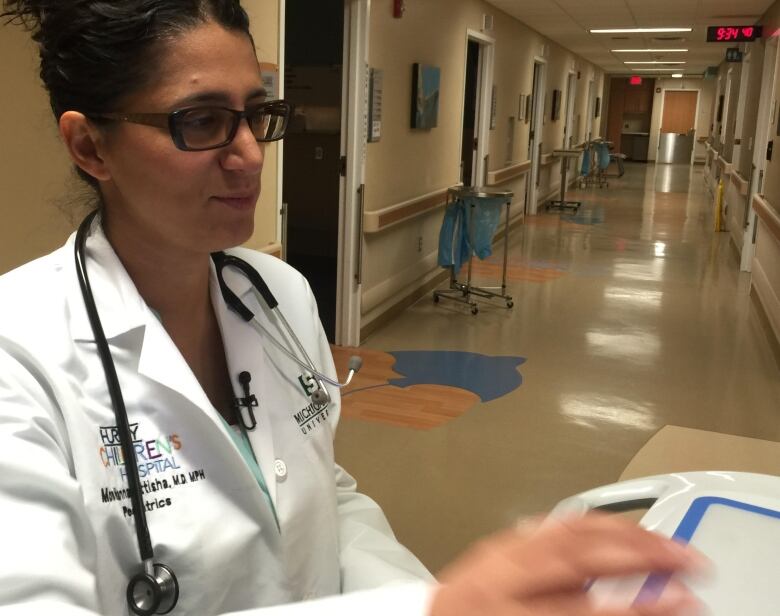
Dr. Mona Hanna-Attishawas the one whodiscovered elevatedlead levels in the blood of Flint's children. But when she took her findings to state officials, she was ignored and her research questioned.
"It was a little traumatic. The numbers didn't lie, but when we were told we were wrong, that we were'unfortunate researchers' it's hard not to second-guess yourself."
We had every obstacle to our children's success before this and then we gave them lead.- Dr. Mona Hanna-Attisha, Hurley Medical Center
But knowing the irreversible danger that any amount of lead poses to developing children, she pushed on. She estimates as many as 9,000 Flint children under the age of six were exposed to lead. She's now leadinga team ofresearchers andpublic-health officials to assess how widespread the exposure was, to monitor the children's long-term developmentand to try to find ways to lessen the impact.
She's determined to help the communityovercome yet another obstacle.
"It's hard to believe that this would have happened in an affluent suburb of Michigan," she said.
"We have a 40-per-cent poverty rate, we have no grocery stores, one of thehighest crime rates in the country, unemployment. We had every obstacle to our children's success before this and then we gave them lead.
"It is going to be a challenge,but we have to use this opportunity to make it right."
The mother: Sarah Conn
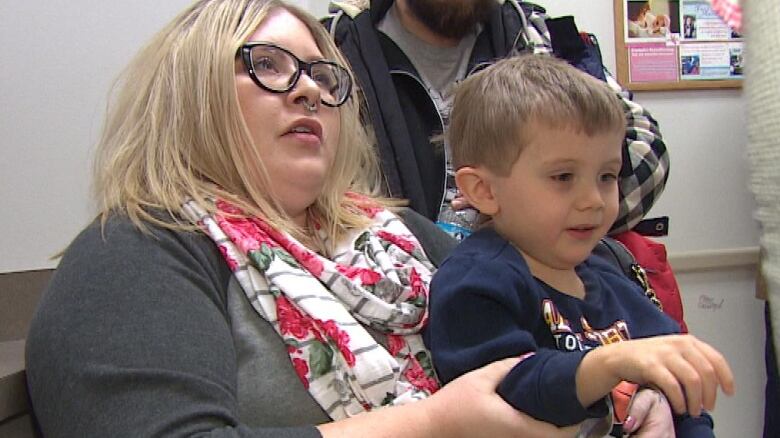
Wealways filtered our water before all this.I just don't even trust water filters anymore.I don't trust anybody.- Sarah Conn, Flint resident
"I just have no clue as to what's going to happen," she said. "Hearing about all the effects that lead poisoning will have on him when he grows up, it's terrifying."
She had filters on her taps and tried to avoid Flint's water by bathing Casimir at her parents' house during the crisisso she has no idea how bad his exposure was.
"Wealways filtered our water before all this.I just don't even trust water filters anymore. I don't trust anybody."
The father: Dion McKinney
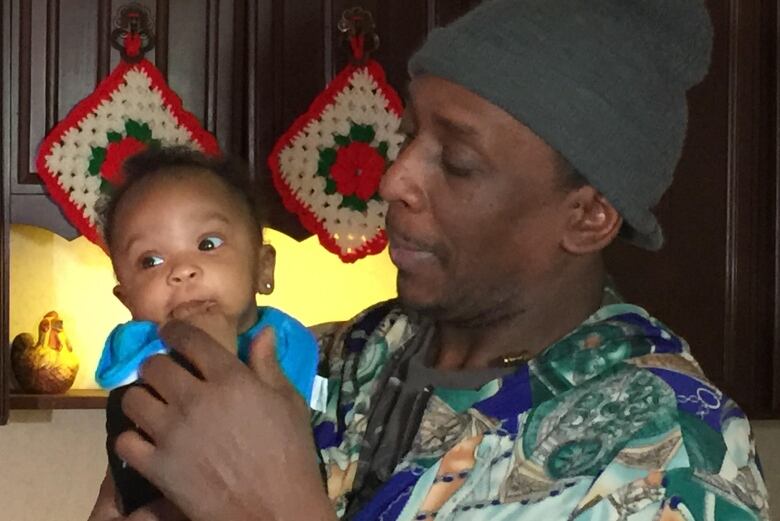
A longtime resident of Flint, Dion McKinney had moved away to find a better life for his family. He moved back in October when his mother started suffering health problems after drinking Flint's water.
Every day in the house is a challenge to stretch the precious little bottled water they get. Some needs to be rationed for cooking. The majority goesto his four-month-old daughter:washing her clothes, bathing, even cleaning her pacifiers.
The state turned their backs on us.- Dion McKinney, Flint resident
"We're used to struggle;we've been struggling ever since GM. It's like they turned their back on us,the state turned their back on us."
He's seen the reports of failures of at every level of government but doesn't have the time or energy for anger.
"I'm upset about it but who can I swing at? Shadow-boxing don't do it," he said.
"We don't know who to trust, we just doing what we gotta do to stay alive."
The sheriff: Robert Pickell
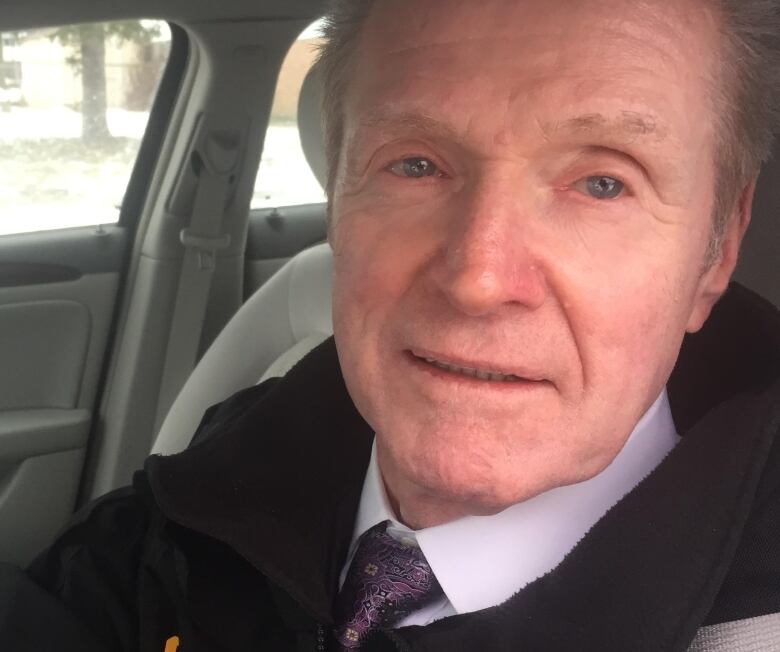
"The less fortunate,these are the people that don't have a political voice;these are the people that don't make contributionsto campaigns.They are the forgotten people and,as a result, the forgotten people are the ones that suffer again."
We're putting a Band-Aid on the problem.- Robert Pickell, Flint county sheriff
He wants U.S. President Barack Obama to declare Flint a federal disaster, which would free up millions to rebuild the city's aging pipes. While Washington has committed $80 million, Pickell says it's nowhere close to what's needed to replace the infrastructure that's poisoned the water.
"What we're doing here, with water and filters, we're putting a Band-Aid on the problem.It's an important Band-Aidbut a surgical procedure needs to be done. And until we get that, we're kidding ourselves."
The soldier: Nehman Lauder
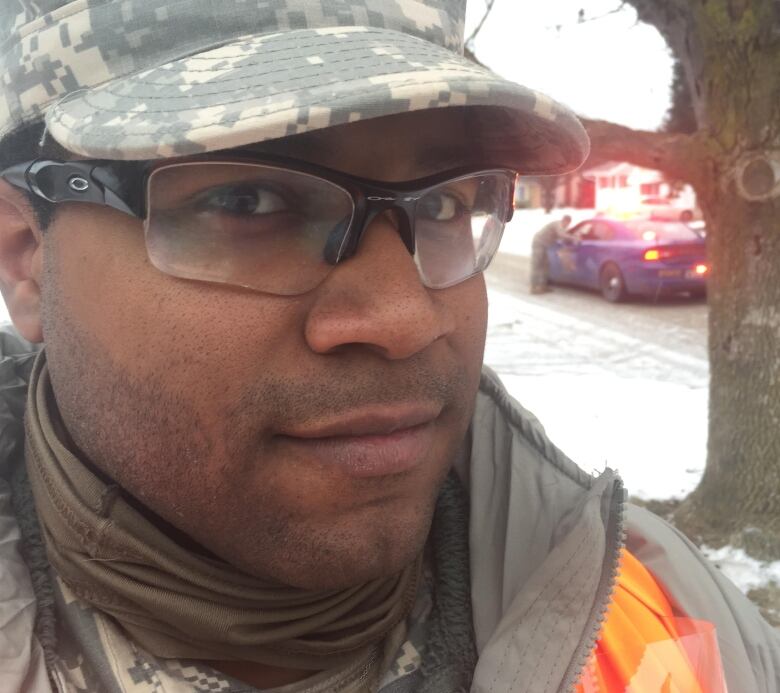
As the government came to understand the true scope of the water crisis, the Michigan National Guard was deployed to hand out cases of water. SpecialistNehman Lauder is welcomed with big smiles when he approaches doors with water, filters and testing kits.
I went to one house and the lady was just in tears. She couldn't believe we were helping out.- Nehman Lauder, Michigan National Guard
"I went to one house and the lady was just in tears. She couldn't believe we were helping out. It made me feel warm inside, knowing I was helping her."
The water-response team he's assigned to is one of 18 out on this day. They hope to hit 10,000 homes a day. Each one is logged and records are kept of who has received what and how much. It's a logistical operation he never thought he'd be doing.
"I lived in a third-world country before and knowing that this stuff is happening hereI never thought it would happen here."













_(720p).jpg)


 OFFICIAL HD MUSIC VIDEO.jpg)
.jpg)



























































































